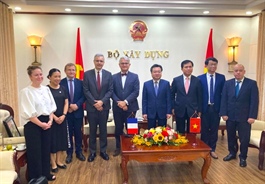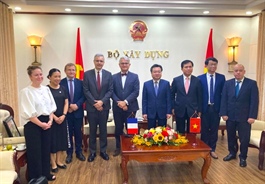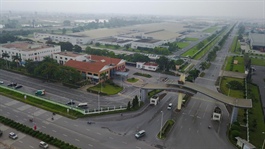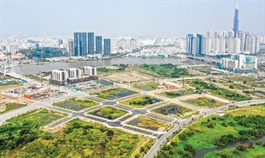Making better decisions in real estate
Making better decisions in real estate
Foreign investors in Vietnamese real estate usually find the procedures of project planning to be cumbersome and filled with too many risks. However, as investment managers frequently say: high risk, high return. Besides the glory and prosperity of a successful real estate project, we have also witnessed many situations where financiers from abroad have paid the price for their bad decisions.

Many of the negative risks arise because of the complicated Vietnamese land laws, which prevent not only foreign investors but also local developers from developing projects. This article will give some hints on how they could properly tackle issues related to land in property project development through the contribution of land.
In the Vietnamese real estate market, it is common for a property developer to have land but not the budget or experience/resources needed to develop the project. In this case, such developers might seek other ways to conduct their business plan.
Some solutions may be to secure a loan facility from a bank; to cooperate with other developers who have experience/resources in the project development; or to call for financial aid from funds, and foreign/local investors or to issue bonds in the capital market. Each solution has its pros and cons.
From a foreign perspective, project land is essential to project development as the Vietnamese land laws prevent a foreign-owned entity/company from directly “buying” land. One of the most common ways for foreign developers to overcome this obstacle and develop property projects is by cooperation with the landowner. Usually, a local company/developer seeks suitable partners to join and launch their project together.
In this scenario, the land-use right of the project land is often contributed by the landowner as a part of their contributions to project development. However, the eligibility of land depends on various criteria regarding not only the land on which the property is constructed but also the type and nature of the project itself.
Status and purpose
In general, freehold ownership status confers on the landowner more rights than leasehold ownership. Under Vietnamese land laws, there are two kinds of ownership of land which confer the right to contribute land-use rights: freehold ownership status and leasehold ownership rights where the landowner has fully paid the rent for the tenancy.
Landowners who have ownership status can contribute the right of land use to be a capital contribution/equity in a company’s shares (or charter capital in Vietnamese). In contrast, landowners with leasehold ownership are subject to several conditions and restrictions from the laws and lease agreements with local authorities before they can exercise their rights.
Under Vietnamese land laws, a particular land plot has a denoted land-use purpose. This means that each land plot will be used for that purpose(s) and that the landowners cannot depart from such use, except in some special cases. This characteristic of land may prevent the landowner from contributing to land-use rights even if he/she has freehold/leasehold ownership.
If a company is a freehold owner over a land plot with the land use purpose listed as commercial land, the company cannot contribute such land plot to construct an apartment building/residential project or other purposes that depart from the zoned land use purpose.
However, the company can contribute the land-use right of the land plot as a capital contribution/share or equity in the incorporation of a newly-established company provided that the new company uses the land for the land use purpose, e.g., for building a mall or hotel.
According to the Law on Residential Housing, the only land use purpose on which residential/property projects may be developed is residential land or other types of land which are allowed by a competent authority to be repurposed as residential land for execution of the project.
According to the Ho Chi Minh City Real Estate Association, in the past five years, about 95 per cent of all property projects do not have fully residential land, which results in the investors involved not being recognised as the project developers and thus being unable to implement their projects.
A new provision in the Law on Investment 2020 now allows them to be recognised as project developers in parallel with the process of changing the land-use purpose.
The ability to contribute
A real estate project which requires land often takes two forms of investment. The first is incorporation of a newly established company, and the second is through a business cooperation contract (BCC).
Based on the ability to manage, a company is the ideal way for partners to handle their investment. However, in practice, not all real estate projects can apply this form of funding due to lack of land or the restriction to the contribution of land caused by the legal status of the landowners. In such cases, a BCC may be more practical and flexible.
The contribution of the land-use right by the landowner in a BCC does not require the transfer of land ownership (or estate) as in the case of a project company. The estate remains in the hands of the landowner who is a party to the BCC. This solves the issue stemming from the leasehold ownership status that excludes the right to contribute the land-use right to a company.
However, parties to a BCC must clearly stipulate their rights, interests, and obligations, including the business plan, estimated turnover, and dividend of profits for their efficient collaboration.






















